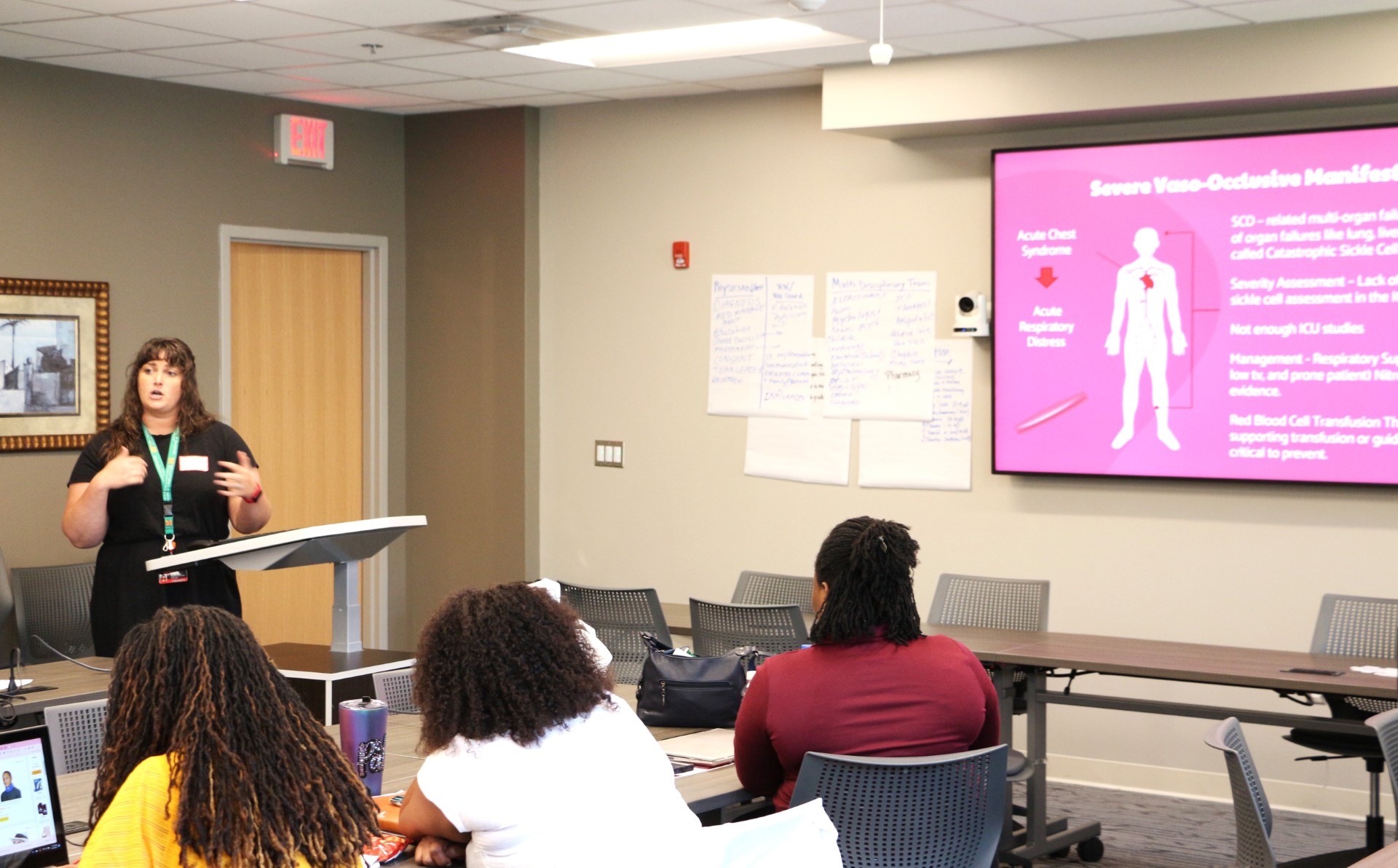Sickle Cell Disease Research
The UT Health Science Center College of Nursing has a strong commitment to research and education related to Sickle Cell Disease – an inherited illness that affects 100,000 people nationwide.
People of African descent make up 90% of the population with Sickle Cell Disease in the U.S. It also affects people of Hispanic, South Asian, Southern European, and Middle Eastern ancestry. The illness affects about 2,000 people in the Mid-South. In recent years, the college has developed an Area of Excellence in Sickle Cell Disease (SCD).
Advancing Sickle Cell Expertise in Nursing

In 2022, the college partnered with St. Jude Children’s Research Hospital and the
International Association of Sickle Cell Nurses and Professional Associates to initiate
a Sickle Cell Boot Camp to Promote Nursing Excellence. This effort was funded with a $50,000 grant from Global Blood Therapeutics (GBT)
Inc., a biopharmaceutical company that develops and delivers treatments for SCD. The
SCD Nursing Boot Camp was the first national intensive nursing program of its kind.
The program allowed nurses to gain theoretical and clinical expertise in the care
of persons with SCD.
In 2023, the boot camp curriculum was expanded to a train-the-trainer model. Two SCD
Nursing Boot Camps were held in 2023 and in 2024, respectively. In March, 2025, a
one-day conference on Sickle Cell Disease Comprehensive Management for Health Care
Providers was held in Memphis, educating more than 125 attendees from seven states.
The most recent Sickle Cell Disease Nursing Boot camp was held Sept. 8-12, 2025 at
UT Health Science Center.
The college is expanding its commitment to improving the quality of care for persons with SCD supported by a $364,502 grant from the United States Department of Agriculture (USDA). The grant has three major objectives:
- Providing a primary care provider conference on comprehensive SCD management.
- Providing workshops on emergency management of SCD complications for Baptist Hospitals in the Delta that serve patients from persistent poverty counties.
- Supporting the SCD Boot Camp to Promote Nursing Excellence.
All objectives are designed to help improve the quality of care for persons with SCD. Researchers expect that more than 240 providers will receive specialized SCD education and training. The principal investigator for the grant is Sara Day, PhD, RN, FAAN, assistant dean for Community and Global Partnerships at the College of Nursing. Co-investigators are Yvonne M. Carroll, RN, JD, director of patient services in the Department of Hematology at St. Jude, and Brooke Clemons, PhD, RN, NPD-BC, a recent graduate of the PhD program in Nursing Science at UT Health Science Center.
